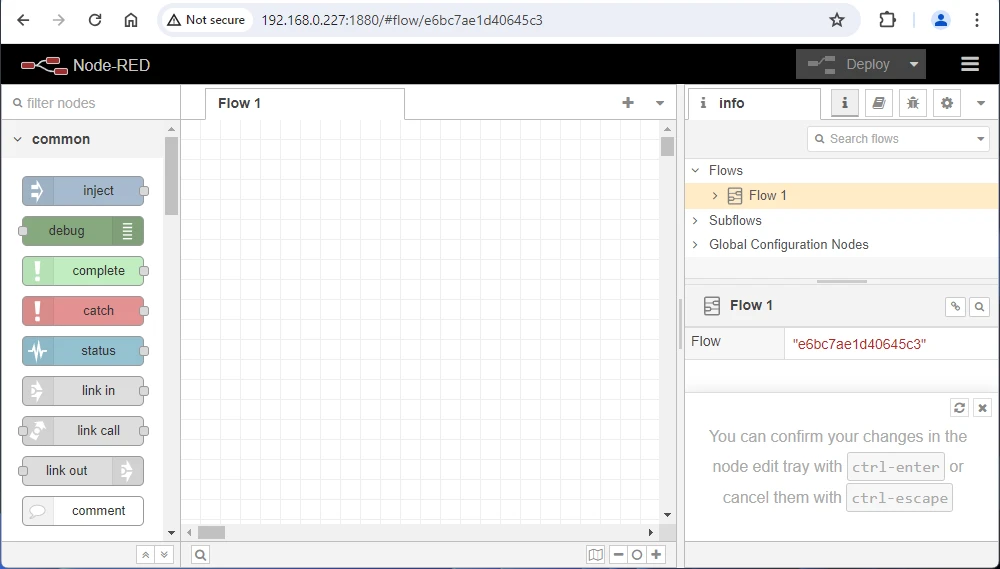Node-RED is a flow-based development tool designed for visual programming for wiring together hardware devices, APIs, and online services as part of the Internet of Things (IoT). It provides a browser-based editor that makes it easy to wire together flows using a wide range of nodes in the palette.
This tutorial explains how to install Node-RED inside a Docker container on Linux. Commands have been tested on Ubuntu.
Prepare environment
Make sure you have installed Docker in your system. If you are using Ubuntu, installation instructions can be found in the post.
Install Node-RED
Before starting, create directory for data:
sudo mkdir -p /opt/node-red/dataSet user, which ID is 1000 as owner for newly created directory:
sudo chown -R 1000:1000 /opt/node-redNote: it doesn't matter that user (ID: 1000) doesn't exist on host system. This user will be created in the container.
- Host network
Run the following command to create a container for Node-RED that uses host network:
docker run -d --name=node-red --restart=always --network=host \
-v /opt/node-red/data:/data \
nodered/node-red- User-defined bridge network
User-defined bridge network can be used for listening on different port. By default, Node-RED service is listening on port 1880. It can be changed with -p option.
docker network create app-netdocker run -d --name=node-red --restart=always --network=app-net \
-p 8080:1880 \
-v /opt/node-red/data:/data \
nodered/node-redTesting Node-RED
To access a web UI, go to http://<IP_ADDRESS>:1880, where <IP_ADDRESS> is the IP address of the system.

Uninstall Node-RED
To completely remove Node-RED, remove its container:
docker rm --force node-redRemove Node-RED image:
docker rmi nodered/node-redYou can also remove Node-RED data:
sudo rm -rf /opt/node-redIf a user-defined bridge network was created, you can delete it as follows:
docker network rm app-net



Leave a Comment
Cancel reply